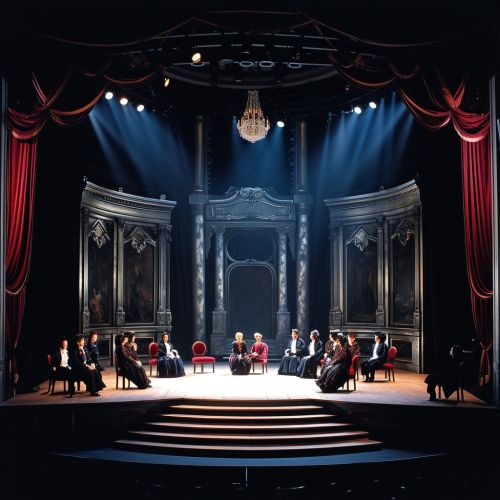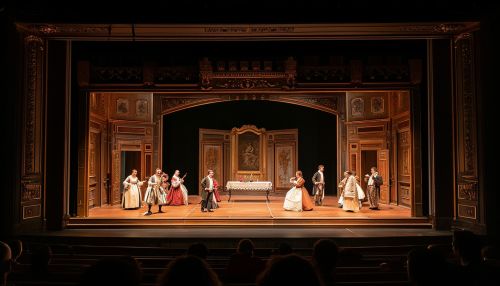Tartuffe
Overview
Tartuffe, also known as The Hypocrite, is a famous theatrical comedy written by Molière, a renowned French playwright. The play was first performed in 1664 and has since been translated into many languages and performed worldwide. The story revolves around a character named Tartuffe, a deceitful religious hypocrite who manipulates the trust of a wealthy man, Orgon, and his family.


Plot
The plot of Tartuffe is a complex web of deceit, manipulation, and hypocrisy. Tartuffe, a seemingly pious and devout man, has ingratiated himself into the household of Orgon, a wealthy and gullible man. Orgon and his mother, Madame Pernelle, are completely taken in by Tartuffe's display of piety and virtue, despite the skepticism of the rest of the family and their friends.
As the story unfolds, Tartuffe attempts to marry Orgon's daughter, Mariane, who is already betrothed to a man named Valère. Tartuffe also tries to seduce Orgon's wife, Elmire, and takes over the family's estate. The family's attempts to expose Tartuffe's true nature are met with disbelief by Orgon, until he himself catches Tartuffe trying to seduce Elmire.
In the end, Tartuffe's deceit is exposed, but not before he has nearly succeeded in taking over Orgon's estate. The play ends with Tartuffe being arrested by an officer of the king, restoring order to Orgon's household.
Characters
The main characters in Tartuffe include:
- Tartuffe - The titular character, a hypocritical and manipulative religious zealot.
- Orgon - The head of the household, who is completely taken in by Tartuffe's false piety.
- Elmire - Orgon's wife, who is the object of Tartuffe's lustful intentions.
- Mariane - Orgon's daughter, who is in love with Valère but is being forced to marry Tartuffe.
- Madame Pernelle - Orgon's mother, who is also fooled by Tartuffe's act.
- Valère - Mariane's betrothed, who helps expose Tartuffe's hypocrisy.
- Dorine - The family's maid, who sees through Tartuffe's act and tries to help the family.
Themes
Tartuffe explores several themes, including hypocrisy, deception, and the misuse of religion for personal gain. Tartuffe's character embodies these themes, as he uses his supposed piety and virtue to manipulate Orgon and his family. The play also explores the theme of blind faith, as represented by Orgon's unwavering belief in Tartuffe despite evidence to the contrary.
Reception and Legacy
Upon its initial performance, Tartuffe was met with controversy due to its critical portrayal of religious hypocrisy. The play was banned by King Louis XIV after pressure from the Catholic Church. However, Molière eventually received royal permission to perform the play, and it has since become one of his most celebrated works.
Tartuffe has had a significant impact on literature and theatre. It is considered a classic of French theatre and has been adapted and performed countless times around the world. The character of Tartuffe has become a symbol of religious hypocrisy and manipulation.
